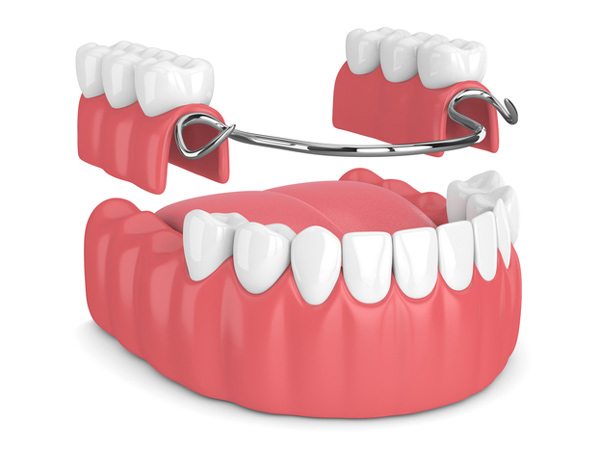Fixed vs. Removable Prosthetics Dental prosthetics are crucial in restoring the function and aesthetics of missing teeth. Fixed and removable prosthetics are available. Understanding the differences between these options can help patients make informed decisions about their dental care. Dental prosthetics are crucial in restoring the function and aesthetics of missing teeth. Fixed and removable prosthetics are available. Understanding the differences between these options can help patients make informed decisions about their dental care.Fixed ProstheticsFixed prosthetics are permanently attached to the teeth or dental implants. They include crowns, bridges, fixed dentures, and fixed hybrid dentures. Here's a closer look at their characteristics. Benefits of Fixed ProstheticsFixed prosthetics are firmly anchored, providing a stable and secure solution for missing teeth. They do not shift or move, which enhances comfort and functionality. Fixed prosthetics closely mimic the look and feel of natural teeth. They are custom-made to match the color, shape, and size of existing teeth, ensuring a seamless and aesthetically pleasing result. Since fixed prosthetics are stable, they restore full chewing and speaking capabilities. This allows patients to eat a wide variety of foods without discomfort or difficulty. With proper care, fixed prosthetics can last many years, often decades. This long-term solution reduces the need for frequent replacements or adjustments. Drawbacks of Fixed ProstheticsThe placement of fixed prosthetics often requires invasive procedures, such as dental implant surgery or tooth preparation for crowns and bridges. Fixed prosthetics are typically more expensive upfront compared to removable options. However, their durability can offset this cost over time. For bridges and crowns, we may need to file down adjacent teeth, which permanently alters healthy teeth. This is not reversible. Removable ProstheticsRemovable prosthetics, such as partial and full dentures, are removed for cleaning and then placed back in the mouth by the patient. Here are the key aspects of removable prosthetics: Benefits of Removable ProstheticsRemovable prosthetics do not require surgical procedures. They are often a suitable option for patients who cannot undergo surgery or prefer a less invasive solution. Removable prosthetics are generally less expensive than fixed options, thereby providing an affordable solution for tooth replacement. Removable prosthetics are removable for cleaning, making it easier to maintain oral hygiene. This helps in preventing infections and other oral health issues. If changes to removable prosthetics are needed, such as adjustments for fit or repairs, it is easy for a dentist to modify them. Drawbacks of Removable ProstheticsRemovable prosthetics can shift or move, especially while eating or speaking, which can cause discomfort and embarrassment. While modern dentures can look natural, they may not match the appearance of natural teeth as closely as fixed prosthetics. Removable prosthetics require daily cleaning and maintenance. They can also wear down over time and may need replacement more often than fixed options. Unlike fixed prosthetics anchored to implants, removable dentures do not provide stimulation to the jawbone, which can lead to bone loss over time. Choosing Between Fixed and Removable ProstheticsPatients with sufficient bone density and healthy gums are often better candidates for fixed prosthetics, such as implants. Those with compromised oral health might opt for removable dentures. Financial considerations play a significant role. While fixed prosthetics have higher initial costs, their longevity can make them cost-effective in the long run. Removable prosthetics are more affordable upfront but may require more frequent replacements. Patients seeking the most natural look and feel might prefer fixed prosthetics. Removable options are often aesthetically pleasing but may not offer the same level of realism. |

Contact Information3709 University Dr Suite D Durham, NC 27707-6224 (919) 489-8661 info@mydurhamdentist.com Follow Us |